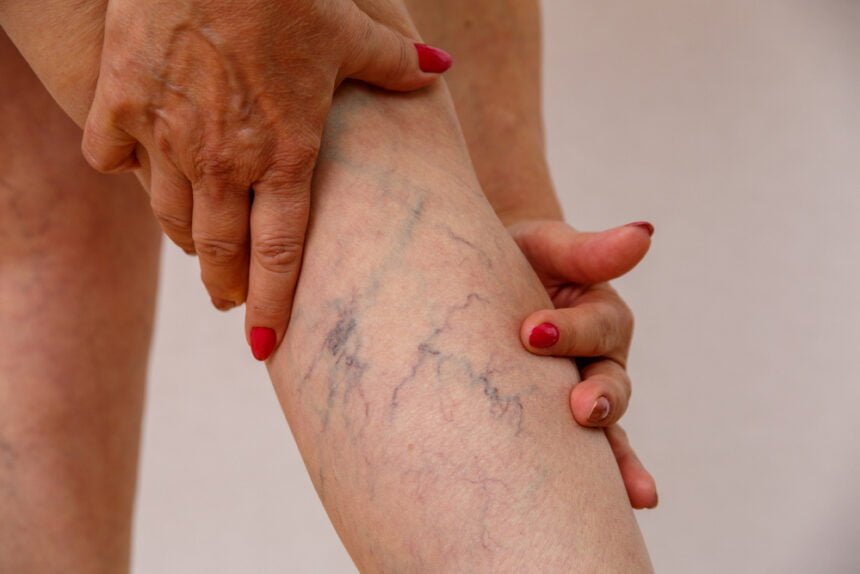Varicose veins are a common condition in which the veins in the legs become swollen, twisted, and enlarged. This condition can lead to pain, discomfort, and other symptoms. In fact, there are a lot of hidden dangers of varicose veins.
If you suffer from varicose veins, you need to know the treatment options available. In this article, we will explore the various treatment options for varicose veins and help you determine which is right for you.
Understanding Varicose Veins
Before we dive into the treatment options, it is important to understand what causes varicose veins. Veins are responsible for carrying blood back to the heart. They have one-way valves that prevent blood from flowing backward. When these valves become weak or damaged, blood can flow backward and pool in the veins, causing them to swell and enlarge.
An estimated 20% of people will get them at some point in their lives. Fortunately, the symptoms can be reduced or even prevented by understanding more about them, including the following.
Factors
Many factors can contribute to the development of varicose veins, including:
- Age
- Genetics
- Pregnancy
- Obesity
- Prolonged standing or sitting
Symptoms
While varicose veins are often considered a cosmetic issue, they can also cause various symptoms, including:
- Pain
- Swelling
- Itching
- Heavy or achy feeling in the legs
Minimally Treatment Options
Treatment options for varicose veins range from conservative measures to more invasive procedures. Visit a Port Charlotte vein specialist to learn about the treatment options available.
Here are some of the most common treatment options:
Compression Stockings
Compression stockings are frequently recommended as a first-line treatment for moderate varicose veins. In this therapy, patients wear special stockings that exert pressure on their legs. This pressure aids in the improvement of blood flow and the reduction of vein edema.
Sclerotherapy
Sclerotherapy involves injecting a solution into the affected veins. This solution causes the veins to collapse and eventually fade away. Sclerotherapy is typically used to treat smaller veins and is often performed in a doctor’s office.
Foam sclerotherapy
It is similar to traditional sclerotherapy, but in this treatment, the solution is mixed with air to create a foam. This procedure can treat larger veins more effectively.
Endovenous Laser Ablation
Endovenous laser ablation uses a laser to heat and close off the affected veins. This technique is typically performed under local anesthesia and takes less than an hour to complete.
Radiofrequency Ablation (RFA)
RFA uses radiofrequency energy to heat and close off the affected veins. This procedure is typically performed under local anesthesia and can be completed in less than an hour.
Invasive surgical procedures
Doctors may recommend these procedures for individuals with severe varicose veins that have not responded to other treatment options. These treatments include:
High ligation and vein stripping
This treatment involves tying off the affected vein and removing it through small incisions in the skin. This is typically done under general anesthesia and may need several weeks of recovery.
Ambulatory phlebectomy
It is a surgical procedure that involves removing the affected vein through small incisions in the skin. This is typically done under local anesthesia and may need a few days of recovery.
Choosing the Right Treatment Option
When choosing the right treatment option for varicose veins, there are several factors to consider. These factors include:
- Severity of your varicose veins
- Overall health
- Age
- Personal preferences
For mild cases of varicose veins, conservative measures like compression stockings may be all that is needed. However, if your symptoms are more severe, you may need a more invasive treatment option.
It is also important to consider the risks and benefits of each treatment option. While minimally invasive procedures are generally safe and effective, there is still a risk of complications like:
- Bleeding
- Infection
- Nerve damage
Conclusion
Varicose veins can be painful, but several treatment options are available to help manage your symptoms. Examine the risks and benefits of each treatment option to ensure you get the best possible outcomes. Also, working with a qualified healthcare provider will help you determine the best treatment option for you. Of course, it is best to try preventing getting them in the first place, so you may want to read this article we wrote on the topic.








